Today working on my code I came across a phase where i needed to cast an object type to my custom class which should have been very simple, but I ended up hours resolving System.InvalidCastException, finally I ended up using JsonConvert to get the job done.
I am not really sure if there was a better way to handle this, if there is I would like to know what I could have done better.
Given is the structure of my custom class
using SQLite.Net.Attributes;
namespace DataContract
{
public class Event
{
#region Properties
[PrimaryKey]
public int Id { get; set; }
public string Name { get; set; }
public DateTime EventDateTime { get; set; }
#endregion
}
}
The Event class is inside a DataContract shared project and my folder structure of the project is given below,
Using EntityFramework I am getting a List<Event> from my sqlite database and I am using this list to display elements in my tableview for android, I go through one item at a time in my list and try to cast it to my custom Event class.
Given is the code for the same which i tried
//tableItems is my IList<object>
var item = tableItems[position];
var view = convertView;
if (view == null)
{
view = context.LayoutInflater.Inflate(Resource.Layout.NativeAndroidEventCell, null);
}
if (item.GetType().FullName.Equals("DataContract.Event"))
{
var x = item as DataContract.Event; // returns null
var y = (DataContract.Event)item; // cast exception
var z = item.GetType().GetField("Name"); // returns null
}
The exception I get is given in the image, I am unable to see the stacktrace here as it shows null
When I watch the value of item variable in the console I see that it shows me the exact values of what is being returned from the database and it even shows me the correct type in the type column but for some reason when i step through the code the value of x is null.
As my last resort I ended up using JsonConvert class and did something like this
if (item.GetType().FullName.Equals("DataContract.Event"))
{
//Not sure if this is the right approach here but it works
var serializedObject = JsonConvert.SerializeObject(item, Formatting.Indented);
var deserializedObject = JsonConvert.DeserializeObject<DataContract.Event>(x);
view.FindViewById<TextView>(Resource.Id.textView1).Text = deserializedObject.Name;
view.FindViewById<TextView>(Resource.Id.textView2).Text = deserializedObject.EventDateTime.ToString();
}
The JsonConvert works and I am able to resolve my issue, but what I am more looking at is to know if I could have done better to resolve this than using JsonConvert Or what I did was correct. Please suggest


